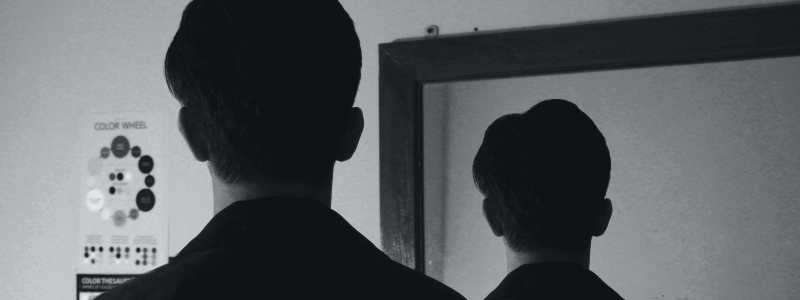In my last two blogs on the topic of narcissism, I have covered off what narcissism is (and is not), and provided my perspective on whether we are, collectively, becoming more narcissistic.
In this final blog (for now) on this topic, I shall offer my perspective on the commonly asked question of whether psychotherapy can help narcissists? As with pretty much every question relating to mental health and psychotherapy, the answer to this seemingly simple question is ‘it depends’.
First off, what is mean by narcissism? Has the person in question received a diagnosis of having a narcissistic personality? And if so, by whom?
The clinical definition of narcissism is one that differs significantly from how the term has been hijacked and is now used in popular culture. Clinicians are far less concerned with outward behaviour that pop culture seems to label as narcissistic and instead think about how the personality of the patient is organised. We are all capable of selfish and inconsiderate behaviour at times, however, this does not mean that we all have narcissistically structured personalities.
I shall not revisit the detailed clinical definition in this blog as for those of you who are interested, you can read more here. However, in summary, someone who has a narcissistic personality style ‘scaffolds’ their sense of self through constant external validation. They therefore have a very fragile sense of self – of who they really are – and instead define themselves by their purchases, conquests or achievements. How most narcissists portray themselves to the outside world (and to themselves) is in direct contrast to how these folks feel on the inside – insecure, inadequate and unlovable.
There is a second type of narcissistic personality which is generally overlooked and often misdiagnosed and that is the deflated or collapsed narcissist. On the face of it deflated narcissists seem to be the opposite to their grandiose counterparts in that they present as depressed and as if nothing they have ever done is any good. However, unlike people with depressive personalities, deflated narcissists are filled with a sense of rage and injustice that they have not been afforded the life and opportunities they believe they deserve – in other words, their internal world is grandiose and consumed by fantasy, whilst externally they seem collapsed.
OK, so now we know what we are dealing with, I can return to the question of whether narcissism can be treated?
The successful treatment of any patient in analysis or psychotherapy is dependent on that patient’s desire to change. As treatment unfolds, it often becomes clear to the patient what change involves and that all change on a structural level is slow and painful. Whilst many people successfully engage with psychotherapy, most if not all harbour a secret wish that change can happen without them actually having to change! This is generally an even stronger fantasy in the world of the narcissist.
Unlike other conditions, people rarely if ever present for therapy because ‘they are narcissists’ – after all, why would they? They are not the problem – everyone else is!
As long as the narcissistic person’s defences (systems of external validation) are working, then they simply will not see that there is a problem. If someone with a narcissistic structure does attend therapy it is either because their defences have failed and they want help putting them back in place, or they have reached an age (usually middle-age) where they realise that the quality of their relationships is limited to non-existent and they want to understand why. The latter is the hopeful position.
In clinical language, there are couple of formulas that enables us to evaluate how successful psychotherapy is likely to be for someone with a narcissistic personality: firstly, how rigid is the personality – the more rigid and towards the realms of personality disorder, the less likely treatment will be successful; secondly, whether there narcissistic personality is combined with elements of psychopathy (anti-social personality). Where someone has a strong combination of narcissism and anti-social traits (or sadistic traits) then treatment outcomes are very poor.
Assuming we are dealing with someone who has a dominant narcissistic personality, but one that is neither too rigid nor mixed with sadism or anti-social traits, then there is hope.
The two approaches
There are two main schools of thought in the psycho-analytic community around how best to treat narcissism which were put forward by two of the main thinkers in the field – Kohut and Kernberg.
Kohut proposed that because what has been lacking in the narcissistic patient’s childhood was an empathic and attuned parent who could see the child’s needs, the work should therefore focus on an empathic and attuned approach of validating the patient’s feelings and working to enable the patient to both bear their ordinary vulnerability as well as to combat their shame about having emotions.
Kernberg, who it has been argued focuses more on the pathological end of the spectrum, takes a more confrontative approach to the narcissistic patient and advocates (in the context of a robust therapeutic relationship) the need to challenge the perspective of the narcissistic patient and to push them to consider the experience of those with whom they are having a relationship. Kernberg’s theory centres around challenging the narcissists central tenet that everything and everyone revolves around them.
So which is right?
The correct approach to treating a patient with a narcissistic personality will be tailored to that patient by the clinician – just as it is for every patient.
My perspective on treating patients is that where there is genuine will on the part of the patient, treatment outcomes are often successful.
Psychotherapy, whether for someone with a narcissistic personality, or indeed any presenting issue, is a courageous endeavour. What brings most of us to therapy is a need for change and change is frightening and painful.
Whilst it is a part of my role to assess and evaluate whether a patient is suitable for psychotherapy, I do this from a clinical and ethical position, rather a moral one. If I cannot help someone, or believe therapy will exacerbate their symptoms or push them into psychosis, I have a duty to not take them on and to refer them for other treatment.
Narcissism, contrary to TikTok and other social media platforms, is not a trait that can be diagnosed just on how someone behaves or treats us. Often it takes a fair number of sessions before I fully understand that someone is developmentally stuck with a narcissistic personality that dominates. However, as long as they want to attempt to enter into a relational world of others then I believe there is hope.
Mark Vahrmeyer, UKCP Registered, BHP Co-founder is an integrative psychotherapist with a wide range of clinical experience from both the public and private sectors. He currently sees both individuals and couples, primarily for ongoing psychotherapy. Mark is available at the Lewes and Brighton & Hove Practices.
Further reading by Mark Vahrmeyer
Are we becoming more narcissistic?
The medicalisation of mental distress



